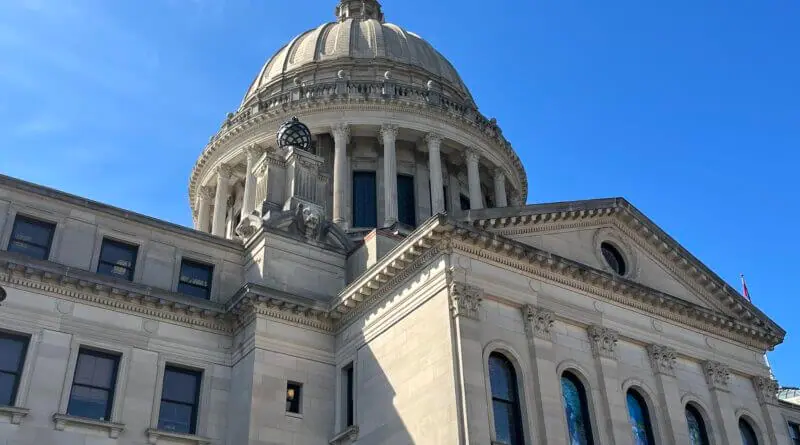Weekly legislative summary
HOUSE OF REPRESENTATIVES WEEKLY SUMMARY
This was the third week of the 2024 Legislative Session. Despite winter weather across much of Mississippi, the Legislature met throughout the week.
On Wednesday, Gov. Tate Reeves called an extraordinary, or special, session of the Legislature for Thursday, Jan. 18. A special session is a meeting of the legislature outside the parameters of a normal session, and the governor decides the subject and matters that will be considered. Usually, a special session takes place when the Legislature is not already in session. This special session was dedicated to a major economic development project.
“Project Poppy” is a $1.9 billion corporate capital investment, the second largest in state history, bringing approximately 2,000 jobs to Marshall County. The average salary is expected to be $66,000. The total payroll for these jobs is expected to be the largest payroll commitment of a major project in state history.
The project is a joint venture of Accelera by Cummins, Inc., Daimler Trucks & Buses and PACCAR. Each of these companies will own 30 percent of the joint venture. The remaining ten percent is owned by EVE Energy, which will serve as the technology partner. The plant will build batteries for electric commercial vehicles, such as 18-wheelers, and it will be located north of Byhalia at the Chickasaw Trail Industrial Park on a 500-acre plot.
The package from the state includes infrastructure improvements, site preparation and certain tax incentives. If benchmarks are not met, the joint venture agrees to pay the state back in full.
Upon gaveling in at 9:30 a.m. on Thursday, the House Ways and Means Committee met to introduce House Bill 1, which outlines the project and provides certain incentives to the companies. HB 1 authorizes the issuance of state bonds of approximately $482 million for the project.
The Senate Appropriations Committee introduced two bills: Senate Bill 2001 and Senate Bill 2002. SB 2001 creates the Project Poppy Fund, a special fund in the State Treasury for this project, while SB 2002 appropriates $117.6 million to the Mississippi Development Authority to fund “Project Poppy.” Both bills passed the full Senate and were released to the House.
The House convened to discuss the three bills, which all passed by a bipartisan vote. House Minority Leader Robert L. Johnson, III, (D – Natchez) introduced two amendments to HB 1. Amendment 1 would require that at least 70 percent of the project’s workforce be Mississippi residents, while Amendment 2 would require the companies to make extra investments in the community surrounding the plant. Both amendments failed, and House Bill 1 was sent to the Senate without changes.
Gov. Reeves is expected to sign the bills into law. The House adjourned sine die from the special session on Thursday afternoon.
Speaker Jason White announced on Friday that committee assignments of Appropriations B, C, D and E will be completed next week. These committees are new standing House committees that are comprised of members of the full Appropriations Committee (Appropriations A).
STATE SENATE WEEKLY SUMMARY
In the third week of session, the Senate continued to organize for business as newly named chairmen called organizational meetings to set committee rules for the term.
On Tuesday, Jan. 16, Gov. Tate Reeves held a press conference to announce a special session later in the week. The First Extraordinary Session was held on Thursday, Jan. 18 and the Senate passed three measures that will allow the Mississippi Development Authority (MDA) to move forward in securing an electric battery cell production facility for commercial vehicles and industrial applications in Marshall County.
A $1.9 billion investment by Accelera by Cummins, Daimler Trucks & Buses, and PACCAR, will locate advanced battery cell production operations on 500-plus acres in Marshall County at the 1,700 + acre Chickasaw Trail Industrial Park, resulting in 2,000 jobs with an average salary of $65,565. The investment deadline for the companies is Dec. 31, 2029. Employee ramp deadline is Dec. 31, 2031.
The Senate’s passage of House Bill 1 provided bonding authority of $482,000,000 for the project, which is reduced by any cash investment made by the state. Senate Bill 2001 created a special fund in the State Treasury and directed the Mississippi Development Authority (MDA) to disburse grants or loans to fund the project. It also directed the State Treasurer to transfer $117,614,000 from the Capital Expense Fund to the project fund. Lastly, Senate Bill 2002 appropriated the transferred funds to MDA, giving the agency the authority to fund the project.
Marshall County will donate the land, valued at $12.7 million. The 2020 Census said Marshall County’s population was 33,755. MDA estimated an additional 707 jobs will be created once operational, leading to contributions of $4.98 million in local taxes and $12 million in state taxes.
The entire 2,707 jobs will have an overall annual economic impact on the area of $587.4 million.
Mississippi’s $186.7 million grant proposal package includes
- $120 million ‘inside the fence’ reimbursements.
- $40.7 million for land stabilization/pad construction.
- $24 million for training.
- $2 million for MDA implementation and state agency expediting funds, including
- $250,000 mandatory state auditor fee.
Mississippi also agreed to:
- 10 year, 100-percent corporate income tax exemption.
- Sales and Use Tax incentive good for construction and for any capital expenditures made
- two months post construction.
- $123.4 million value of local public infrastructure commitment.
- $127.4 million Phase II MDOT Eastern interchange, plus access road if future traffic
- counts justify it.
Claw back clauses or state investment recovery agreements are included.
The Senate adjourned Sine Die from the First Extraordinary Session on Thursday, Jan. 18.



